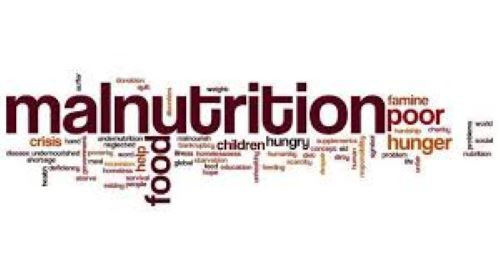The Accelerating Nutrition Results in Nigeria (ANRiN) project has unveiled its achievements in improving the health and well-being of children under five, adolescent girls, and pregnant and lactating women in Kaduna State.
The first phase of the ANRiN project is set to conclude on June 30, 2025, while the second phase—ANRiN 2.0—is scheduled to commence on July 1, 2025.
ANRiN 2.0 will feature three core components: the delivery of a basic package of nutrition services, integration with food systems, and data-driven multi-sectoral coordination and accountability.
During a four-day sustainability workshop held in Kano, the Kaduna State Project Manager, Dr. Zainab Muhammad-Idris, revealed that the project delivered a total of 6,267,880 services—surpassing its original target of 5,784,983.
She detailed that services provided included vitamin A supplementation, deworming, distribution of micronutrient powders, and counselling on Maternal, Infant, and Young Child Nutrition (MIYCN) practices.
Additionally, the project offered contraception services to adolescent girls, including both Short-Term Methods (STM) and Long-Acting Reversible Contraception (LARC). A total of 146,897 adolescent girls received these services, with 23,578 opting for LARC and 123,319 choosing STM.
At the health facility level, the project trained 60 Master Trainers, 120 secondary healthcare workers, and 510 primary healthcare workers in various healthcare delivery areas.
Dr. Muhammad-Idris also reported that over 300,000 pregnant women were reached with MIYCN counselling, iron and folic acid supplements, and malaria prevention treatment.
The project established and strengthened 23 Grievance Redress Committees (GRCs) across the state to enable communities to provide feedback on service delivery.
She further highlighted the project’s emergency intervention in Tudun Biri community—victims of a drone attack—where food items, livestock, seedlings, and other agricultural inputs were distributed.
Chairman of the Kaduna State Committee on Food and Nutrition (SCFN), Bashir Muhammad, commended the collaborative efforts behind ANRiN’s success. He emphasized that continued stakeholder engagement would be critical in sustaining the progress made in improving nutrition outcomes for the state’s most vulnerable populations.
He reiterated SCFN’s commitment to supporting initiatives that advance nutrition and health goals, stressing the importance of coordination in addressing malnutrition.
State Nutrition Officer, Ramatu Haruna, described malnutrition as a major public health concern in Kaduna, responsible for over 50% of under-five deaths. Represented by Jibril Isah, RMNCAH Monitoring and Evaluation Officer at the State Primary Health Care Board, she shared concerning indicators:
Only 13% of newborns receive timely breastfeeding, 41.1% of infants are exclusively breastfed, and just 12.3% of children aged 6 to 23 months meet adequate feeding standards.
Haruna said the state has 1,063 Primary Health Care Centres (PHCs) and 31 secondary health facilities, with 162 providing Integrated Management of Acute Malnutrition (IMAM) services and 560 delivering MIYCN interventions. In addition, one tertiary hospital and 31 secondary facilities serve as Severe Acute Malnutrition (SAM) stabilisation centres, supported by Infant and Young Child Feeding (IYCF) services across all 23 local government areas.
A total of 585 healthcare workers from 162 PHCs have been trained on IMAM, alongside 1,620 community volunteers who have formed 14,580 support groups across the state.
Nutrition Specialist for the ANRiN project in Kaduna, Hauwa Usman, said the workshop was designed to bring together stakeholders from various ministries and agencies to review achievements, draw lessons, and strengthen capacity for sustainability and multi-sectoral collaboration.
ANRiN is a state-led, World Bank-funded, performance-based project focused on increasing the use of high-quality, cost-effective nutrition services for women and children under five. The project operates across 12 high-burden states in Nigeria, primarily through the delivery of a community-based Basic Package of Nutrition Services (BNPS).


